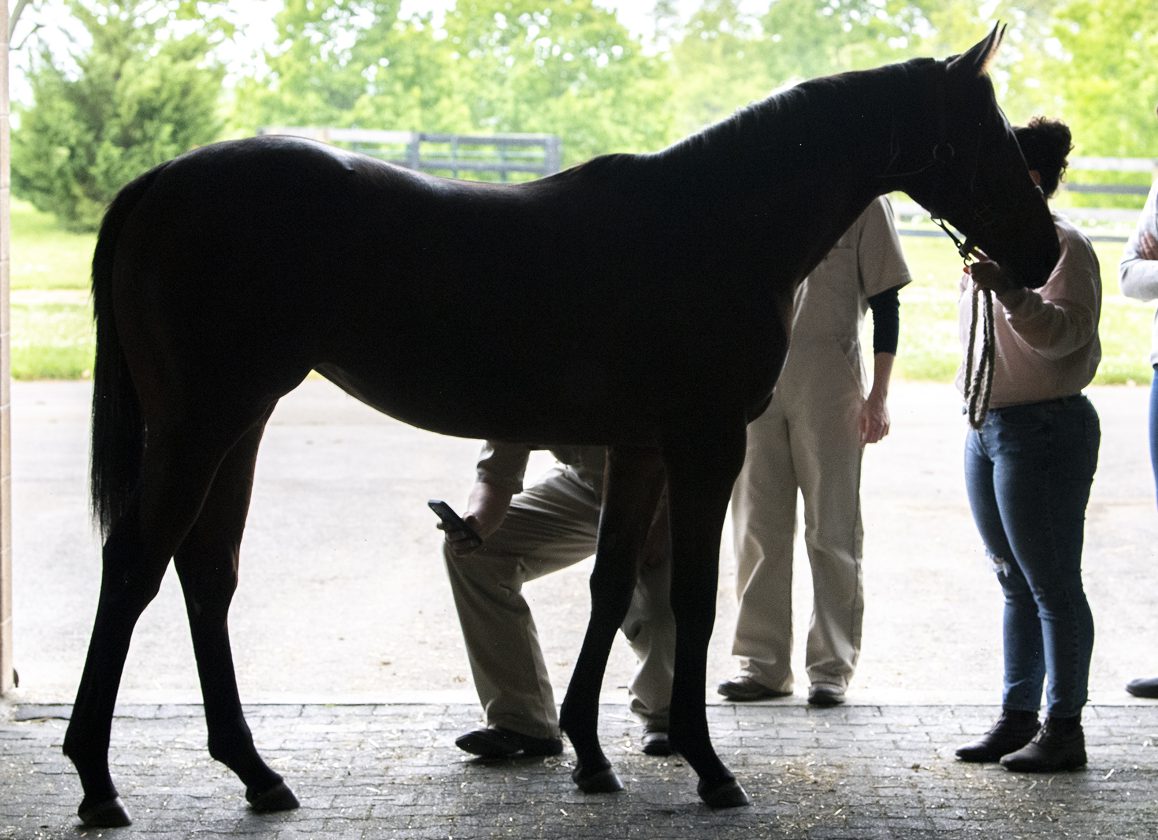I read with much interest the recent article involving the interview with John Sikura from Hill 'n' Dale farm. I happen to agree with some of his points, especially that fixing many of the issues currently present in racing will require the combined sacrifice and agreement of many facets of the racing industry.
However, what struck me the most in this article was that, once again, a member of the breeding community in racing does not seem to think anything with their own business needs to change. From a business model perspective of course, this makes sense. It is no secret that people today are breeding more to sell than to race, and huge stud fees and stud deals are driving many top horses to what would be considered by most early retirements from racing. Looking at it from an overall health of the breed now and going forward perspective, however, gives one pause to think if this really is the best for the breed and sport in the long term. Mr. Sikura touched on this aspect a little when he made an analogy using a family that acquires a German Shepherd and if that breeder should be considered immoral or not knowing that the dog likely will have medical issues in life.
Yes, German Shepherds are prone to hip dysplasia, and a lot of them end up having quite serious issues because of it. However, the reason that the issue has gotten worse over time and not better is because the desire of the dogs to look a certain way now to fit the “breed standard” that judges in shows seem to think makes a “champion dog.” So, the breeders are looking for those genetics to breed what they feel is the “best specimen” from a look's standpoint but not necessarily from a medical or health standpoint. It is the same with other breeds of dog such as bulldogs. If the breed standard changed to go back to dogs that both looked good and had solid health behind them, you wouldn't have the same number of issues with them you do today (Heck…in Britain vets have suggested severely curtailing and even banning the breeding of bulldogs and pugs because of how horrible their health has become all in search for meeting the “breed standard”).
So, to answer his question of “do you blame the breeder?” Well…in some instances…yeah…you do. It may not be every single breeder of German Shepherds, but certainly some will breed poorly in search of meeting market demand. If judges at shows and breed registries were able to get what they considered the “breed standard” to be changed to a healthier dog overall (something that really boggles the mind of us small animal vets who see the horrors that their idea of a “breed standard” brings into this world), then the breeders would adjust their genetics accordingly. Not too much different than what we are seeing in racing these days in the US. Instead of looking to get the “Best in Show” award, though, it is about having the fastest and most precocious horse in hopes of winning early and cashing in. Durability appears an afterthought.
Looks and precocity sell in today's yearling market. Everyone knows that. Most also know that corrective surgeries and other alterations are done to some foals to hide or correct faults that may be present after birth. When you breed to fit a specific demand or need, there are going to be unwanted other results in the breed one cannot avoid. One really can't fault breeders, per se, if they are merely providing what the market is demanding right now. However, at what point do breeders have to start looking at what is best for the healthy continuation of the sport we all love even if that means a temporary loss of major profits? At what point does doing the morally correct thing for the horse outweigh the need to have the highest priced yearlings or 2-year-olds that may look great in the ring and/or run a 10 second 1/8th of a mile, but whose bodies can't stand even the most basic rigors of training and racing past one season?
Just as one can't paint the entire dog breeding world with the same wide brush, this is not a condemnation of the entire Thoroughbred breeding industry. Just as there have been cries for the racing industry to do better policing itself before having to resort to the oversite of HISA, there needs to be better self-policing or oversite of some kind in the breeding industry for Thoroughbreds.
Many, I'm sure, will say I have absolutely no idea what I am talking about. To an extent they may be correct. What I do know, though, is that Mr. Sikura is right in that in order to get real change then everyone will need to make some sacrifices in the name of progress, and that includes breeders. Those sacrifices need to come now, and not for the next generation of racing folks to have to worry about, because there might not be a real next generation.
-Dr. Bryan Langlois, DVM served as President of the Pennsylvania Veterinary Medical Association from 2018-2019 and is a current board member of their charitable arm, Animal Care PA. He is also on the Board of Directors of ThoroFan.
Not a subscriber? Click here to sign up for the daily PDF or alerts.






